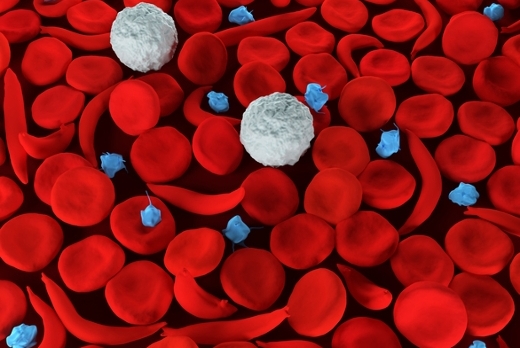The National Institutes of Health has awarded a four-year, $3 million grant to a research team at Emory and Georgia Tech that will use new technologies to improve the effectiveness of blood transfusions in patients with sickle cell disease.
The research will take place in the labs of Wilbur Lam, MD, PhD, and Melissa Kemp, PhD, both associate professors in the Coulter Department of Biomedical Engineering at Georgia Tech and Emory University, and at the University of Minnesota lab of David Wood, PhD. Lam is also part of the Aflac Cancer and Blood Disorders Center of Children’s Healthcare of Atlanta.
The NIH-funded project is entitled “Redefining clinical viscosity in sickle cell disease by leveraging microfluidic technologies.”
Sickle cell disease is a life-threatening genetic blood disorder in which red blood cells become physically altered and misshapen. Viscosity, or resistance to flow, is a complex biophysical property of blood that changes in various parts of the circulation in the body and is rendered even more complex by sickle cell disease.
“While blood viscosity in sickle cell disease is poorly understood,” explains Lam, “it remains important clinically, because physicians are instructed to use blood transfusions judiciously to avoid ‘hyperviscosity,’ but are also hampered by clinical transfusion guidelines that are not scientifically sound or evidence-based.”
The researchers propose to use new microfluidic and computational modeling techniques to model the different blood vessels and to more precisely define what “viscosity” means in different parts of the circulation within a sickle cell disease patient. They also will study how viscosity changes in the context of blood transfusions, which will lead to more patient-specific transfusion guidelines.
“We are grateful for this funding, and confident that the grant will allow us to make a significant contribution to redefining and improving guidelines for blood transfusions in sickle cell disease,” says Kemp. “This could make a significant difference in the quality of life and long-term health of these patients.”

